Program Search
Programs for Every Stage of Your Learning Journey
Discover hundreds of flexible continuing education options tailored for lifelong learners—from high school students to working professionals—seeking certifications, career advancement, or personal enrichment.
Looking for a UVM course for credit? Explore Summer and Fall Credit Courses.
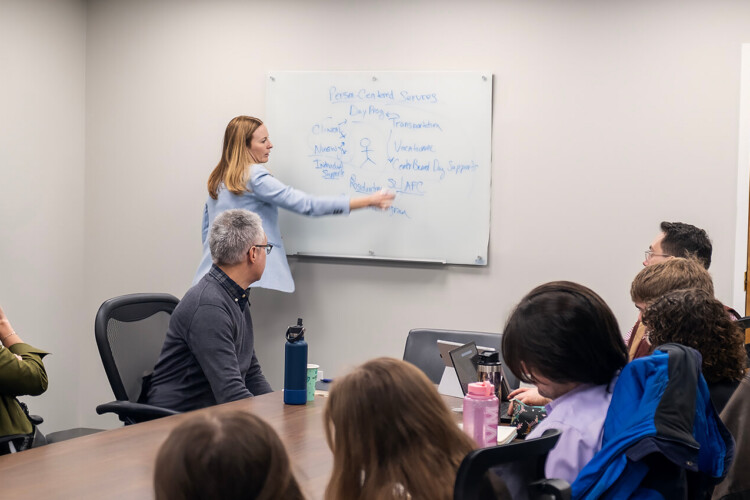
Accounting: Pre-MAcc Sequence
-
Type
University Coursework -
Format
Hybrid -
Semester
Fall, Spring, Summer
• Microeconomics
• Principles of Financial Accounting (Introductory Financial Accounting)
• Principles of Managerial Accounting (Introductory Managerial Accounting)
• Corporate Financial Reporting 1 (Intermediate Accounting 1)
These UVM courses will provide an introduction to accounting and a gateway to the Master of Accountancy Program. Click to visit or contact MAcc@uvm.edu for further information.

Actuarial Exam Preparation
-
Type
Credit Certificate -
Format
Hybrid -
Semester
Fall, Spring, Summer
UVM’s Pre-Actuarial Certificate is for students with strong math skills and an undergraduate degree who want to pass the Actuarial Science certification exams and work as an actuary.

Agile
-
Type
Certificate -
Format
Online -
Semester
Fall, Spring, Summer, Winter
Project management is multidimensional depending on the project, industry, and team. MindEdge’s Agile program of coursework teaches the principles of time management. Agile Project Management is ideal for teams that must move quickly. Add this approach to your project management toolbox to be even more marketable to businesses and valued within your organization.
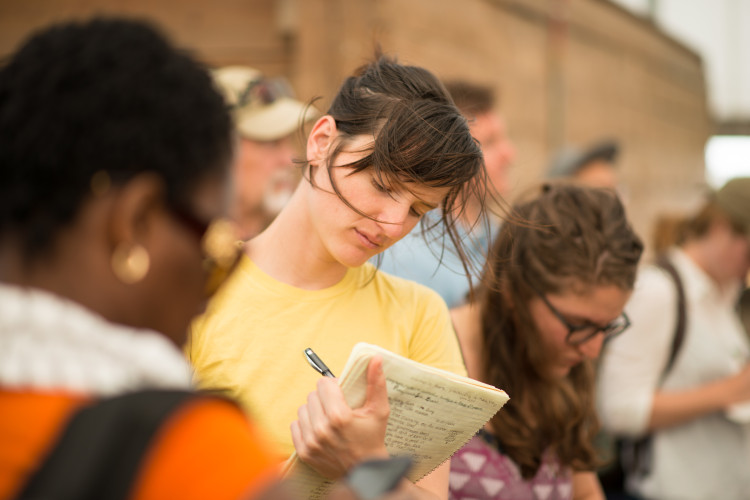
Agroecology, Food Sovereignty and Social Movements
-
Type
University Coursework -
Format
Online -
Semester
Fall, Spring
Available as a non-credit, 14-week online course, students will investigate the social, political, and economic elements of the global food system from multiple perspectives.

Certificate in Cybersecurity
-
Type
Credit Certificate -
Format
Online -
Semester
Fall, Spring
UVM’s certificate in Cybersecurity is designed to develop a comprehensive foundation in the knowledge and skills necessary for a career in cybersecurity.

Certificate in Gerontology
-
Type
Credit Certificate -
Format
Hybrid -
Semester
Fall, Spring, Summer
Challenge misconceptions about aging and replace them with information firmly grounded in reality.
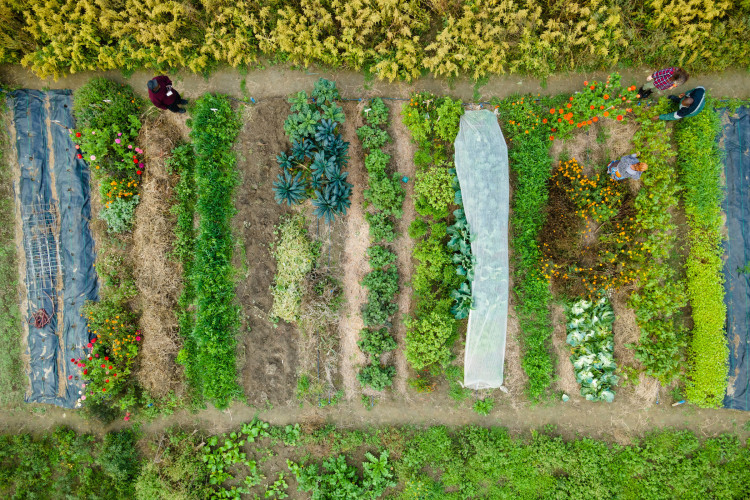
Certificate of Graduate Study in Agroecology
-
Type
Credit Certificate -
Format
Hybrid -
Semester
Fall, Spring, Summer
Composed of one hybrid course, three foundational online courses, and final synthesis online seminar course, the goal of the CGSA is to provide participants with graduate-level, conceptual, and applied knowledge in agroecology.

Certificate of Graduate Study in Complex Systems and Data Science
-
Type
Credit Certificate, Graduate Program -
Format
Online -
Semester
Fall, Spring
Gain data science expertise with the Certificate Graduate Study in Complex Systems and Data Science at the University of Vermont. Learn wrangling, visualization, machine learning techniques, and more to uncover stories underlying complex systems.
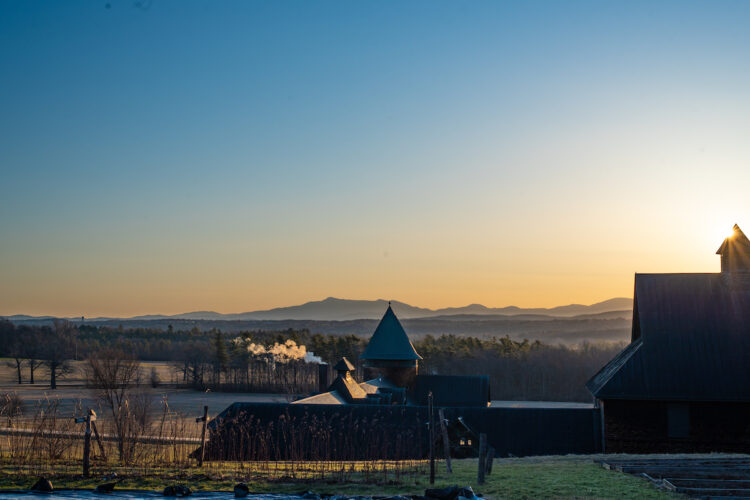
Certificate of Graduate Study in Education for Sustainability
-
Type
Credit Certificate -
Format
Hybrid -
Semester
Fall, Spring, Summer
Empower your students by earning an Education for Sustainability Certificate from UVM, a program designed to help educators accelerate positive change in their school and community.

Certificate of Graduate Study in Epidemiology
-
Type
Credit Certificate, Graduate Program -
Format
Online -
Semester
Fall, Spring
UVM’s Certificate of Graduate Study in Epidemiology provides students with a framework for problem-solving and critical thinking in analyzing disease and health-related conditions within diverse populations.

Certificate of Graduate Study in Global and Environmental Health
-
Type
Credit Certificate, Graduate Program -
Format
Online -
Semester
Fall, Spring
Develop expertise in a range of health hazards, health-promotion strategies, and environmental public health practices with this one-year Certificate of Graduate Study in Global and Environmental Health.
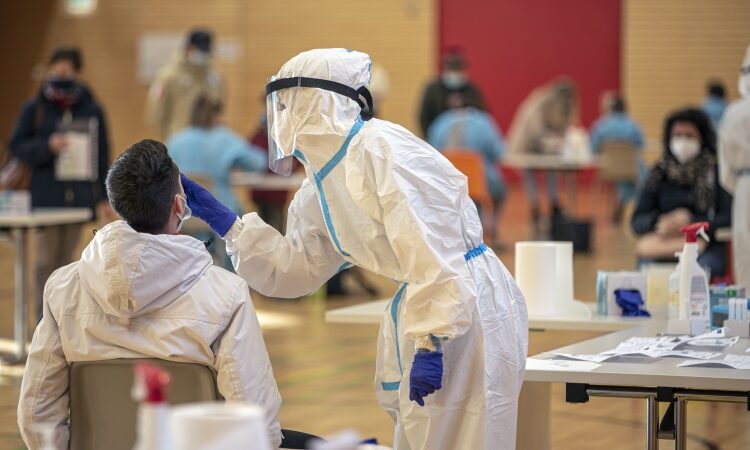
Certificate of Graduate Study in Healthcare Management and Policy
-
Type
Credit Certificate, Graduate Program -
Format
Online -
Semester
Fall, Spring
Explore policy, finance, and management issues impacting healthcare and public health with this one-year Certificate of Graduate Study in Healthcare Management and Policy.

Certificate of Graduate Study in Public Health
-
Type
Credit Certificate, Graduate Program -
Format
Online -
Semester
Fall, Spring
Build a strong foundation in population health sciences, including epidemiology, biostatistics, and environmental health with this Certificate of Graduate Study in Public Health.

Certificate of Graduate Study in Sustainable Enterprise
-
Type
Credit Certificate, Graduate Program -
Format
Online -
Semester
Fall, Spring, Summer
Discover the power of the triple bottom line sustainability framework in your business strategy and drive competitiveness while championing sustainability.

Change Management
-
Type
Certificate -
Format
Online -
Semester
Fall, Spring, Summer, Winter
Leaders and managers are often called upon to deal with the challenging impacts of change, to work through disputes with partners and customers, and to resolve conflict within the organization. MindEdge’s Certificate in Managing Change and Resolving Conflict covers the key issues and best practices for managers dealing with contentious situations in the workplace.

Companion Animal End-of-Life Doula Professional Certificate
-
Type
Certificate -
Format
Online -
Semester
Fall, Spring, Summer
When a beloved animal is nearing end-of-life, stress can be high. Enter UVM’s End-of-Life Doula program specializing in companion animals.

Computer Software Certificate
-
Type
Credit Certificate -
Format
Hybrid -
Semester
Fall, Spring, Summer, Winter
Advance your career in an IT-related field, earn credits toward a computer science degree, or take the first step to become a software developer.

Contingency Management Professional Certificate
-
Type
Certificate -
Format
Online -
Semester
Fall, Spring, Summer, Winter
Learn to guide those with addiction toward better physical and mental health through contingency management, an evidence-based behavioral intervention wherein patients receive material incentives contingent on objectively-verified behavior change.
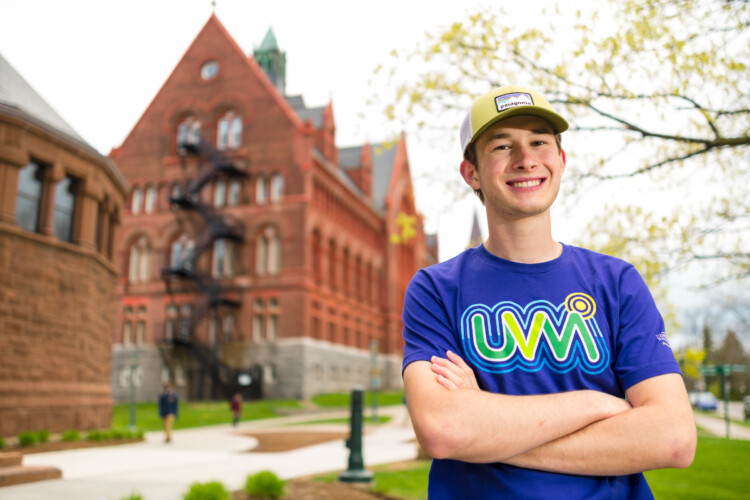
Credit Courses
-
Type
University Coursework -
Format
On Campus, Online, Hybrid -
Semester
Fall, Spring, Summer, Winter
Refresh your knowledge, learn a new skill, pursue a passion, or prepare for an advanced degree with courses at UVM. Explore hundreds of options from American Sign Language to Creative Writing, Human Biology, Public Health, and more. Chart your path today.

Data Analytics
-
Type
Certificate -
Format
Online -
Semester
Fall, Spring, Summer, Winter
Modern business software produces mountains of data; it’s up to the professional to examine it and draw meaningful conclusions. MindEdge’s Data Analytics certificate and coursework will teach the fundamentals of quantitative analysis so you can not only read the trends but convert them into thoughtful business decisions.
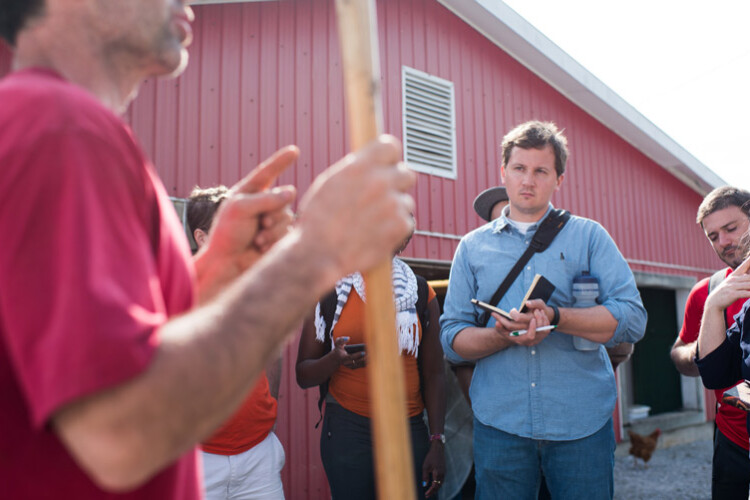
Ecological Economics Graduate Certificate
-
Type
Credit Certificate, Graduate Program -
Format
On Campus -
Semester
Fall, Spring, Summer
Learn a framework for solving humanity’s environmental challenges by analyzing the interdependence of the economy and the environment.
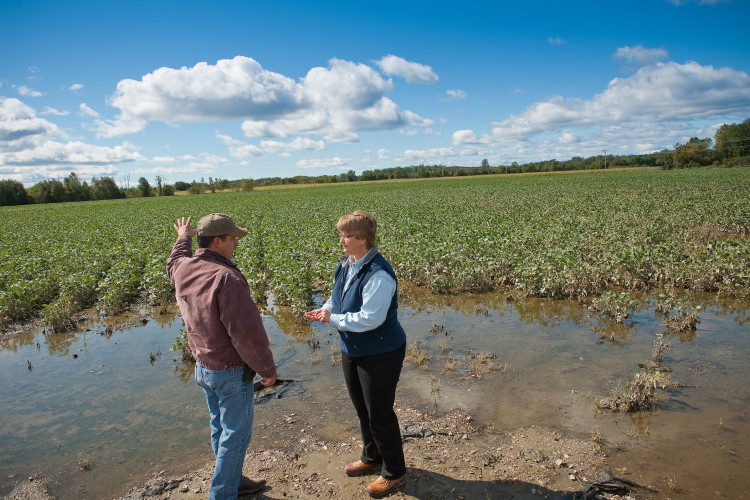
Ecological Foundations of Agroecology
-
Type
University Coursework -
Format
Online -
Semester
Fall, Spring
Available as a non-credit, standalone offering, this 15-week, online course, examines the ecological foundations of Agroecology, largely from a biophysical perspective.

Ed2Go Certifications in Business and Manufacturing
-
Type
Certificate -
Format
Online -
Semester
Fall, Spring, Summer, Winter
University of Vermont, in partnership with Ed2Go, offers online open enrollment programs designed to provide the skills necessary to acquire professional level positions for many in-demand occupations.

Education and Social Services Professional Development Courses
-
Type
University Coursework -
Format
On Campus, Online -
Semester
Fall, Spring, Summer, Winter
We prioritize teaching, research, and services that are student-centered, family-focused, community-engaged, and culturally competent.

End-of-Life Doula Business Foundations Professional Certificate
-
Type
-
Format
-
Semester
Fall, Spring, Summer, Winter
Overview Show up authentically and run your practice with confidence Many End-of-Life Doulas struggle to attract clients. Not because they lack the skills, but because talking about those skills (or …

End-of-Life Doula Professional Certificate
-
Type
Certificate -
Format
Online -
Semester
Fall, Spring, Summer, Winter
UVM’s online End-of-Life Doula Professional Certificate prepares students for the increasing demand for end-of-life support. Start your end-of-life doula training today.
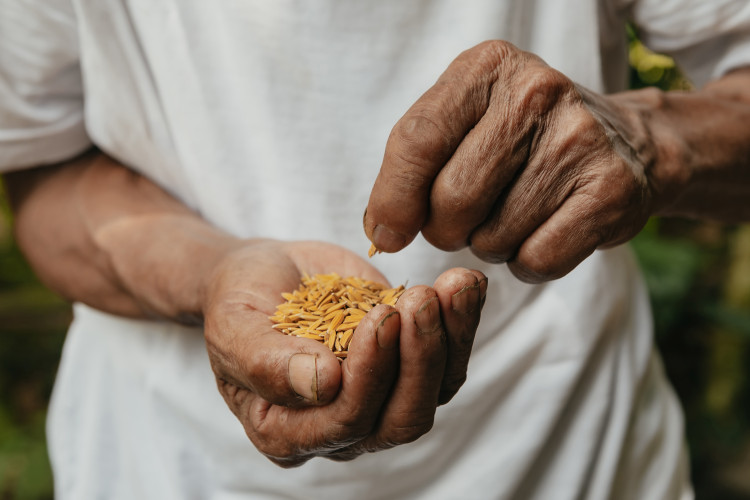
Food Systems Graduate Program
-
Type
Graduate Program -
Format
On Campus -
Semester
Fall, Spring
Combining knowledge with action, UVM’s 18-month, transdisciplinary, cohort educational model program prepares students to apply knowledge of the interconnected and interdependent global food system and helps them develop skills in mixed method research approaches in order to critically analyze and propose solutions to our most challenging problems.

Food Systems Ph.D.
-
Type
Graduate Program -
Format
On Campus -
Semester
Fall, Spring
When you earn your Ph.D. in Food Systems, you’ll join a cohort that works together to devise potential solutions to society’s biggest challenges within our food system.

Geographic Information Systems and Data Communication Certificate
-
Type
Certificate -
Format
Online -
Semester
Fall, Spring, Summer, Winter
Discover why UVM is a leader in training and certification in geospatial technologies with our GIS certificate program. Develop your skills for data-driven decision-making today!

Grief and Bereavement Specialist Professional Certificate
-
Type
Certificate -
Format
Online -
Semester
Fall, Spring, Summer
This program equips professionals with a deep understanding of the history, psychology, and cultural and developmental considerations related to grief.

Hospitality Management Professional Certificate
-
Type
Certificate -
Format
Online -
Semester
Fall, Spring, Summer, Winter
Overview Find Work That Adapts to Your Life This customizable six-course certificate will prepare you to advance into hospitality management from an entry or mid-level position (hospitality industry experience is …

Human Resource Management
-
Type
Certificate -
Format
Online -
Semester
Fall, Spring, Summer, Winter
HR is both the glue that holds a business together. It is the management of people; caring for their health and safety, managing their financial investment in the company, and fostering their growth within the organization and beyond. MindEdge’s HR certificate and coursework will give you a well-rounded foundation in the human resource management sector to keep your organization’s most valuable assets–its people–working smoothly.

Integrative Health and Wellness Coaching Program
-
Type
Certificate, Credit Certificate -
Format
On Campus, Online -
Semester
Fall, Spring
Help people make healthy lifestyle changes with our health and wellness coaching programs. UVM’s program meets the requirements for national board certification.

Integrative Healthcare Certificate
-
Type
Credit Certificate -
Format
Hybrid -
Semester
Fall, Spring, Summer
UVM’s Integrative Healthcare Certificate prepares students to understand traditional methods of healthcare with complementary care and self-care. Start your integrative health certificate today.

International Trade
-
Type
Certificate -
Format
Online -
Semester
Fall, Spring, Summer, Winter
Most businesses today operate on the global scale. The MindEdge International Trade program delves into the five realms of global trade: documentation, compliance, intercultural awareness, technology, and resources. The suite of courses prepares learners to take NASBITE’s Certified Global Business Professional™ exam.
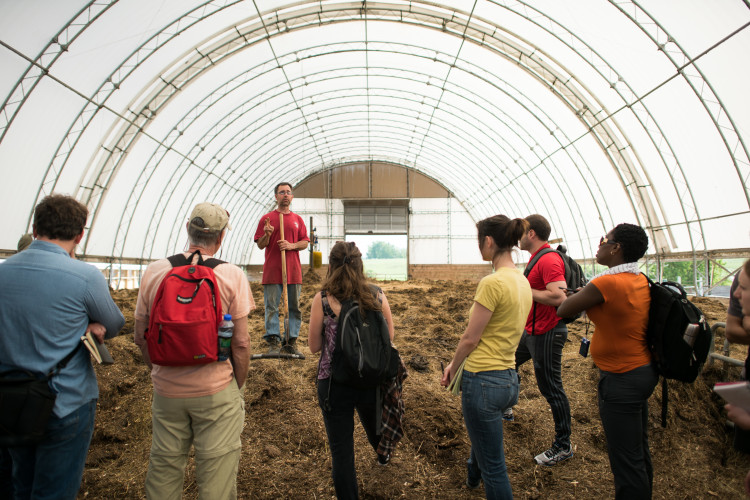
Introduction to Agroecology
-
Type
University Coursework -
Format
Online -
Semester
Fall, Spring, Summer
Available as a non-credit, standalone offering, this 15-week, online course presents an in-depth overview of research and applications in the field of agroecology, with a focus on principles-based approaches.
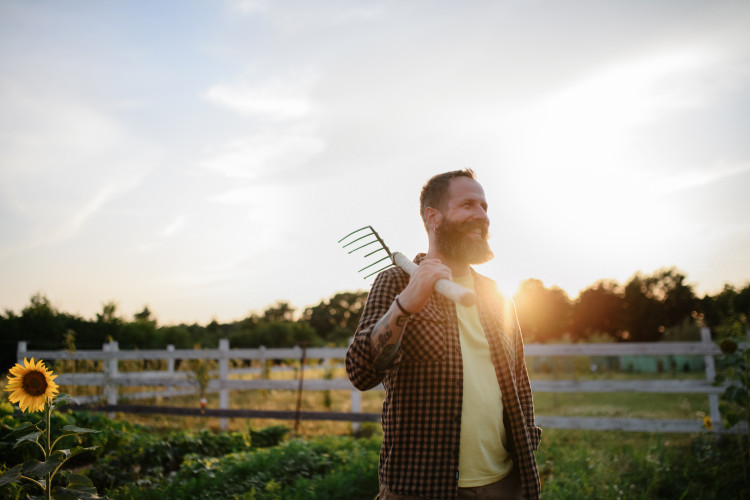
Just Transitions – Food Systems
-
Type
University Coursework -
Format
Online -
Semester
Spring
Available as a non-credit, standalone online offering. Students will explore how agroecological transitions are complex, relational and ongoing processes of change that unfold in territories, and shaped by these wider processes within a complex matrix of power.

Leadership Essentials for Dynamic Organizations
-
Type
Certificate -
Format
Online -
Semester
Fall, Spring, Summer, Winter
Powered by MindEdge at UVM, this suite of courses is ideal for professionals looking to build critical competencies in managing teams, negotiating business deals, and utilizing data insights to drive organizational performance.
Offerings include: Leading and Managing Change ● Leading Teams ● Effective Business Writing ● Data Analysis for Improving Organizational Performance ● Negotiations: Making Business Deals
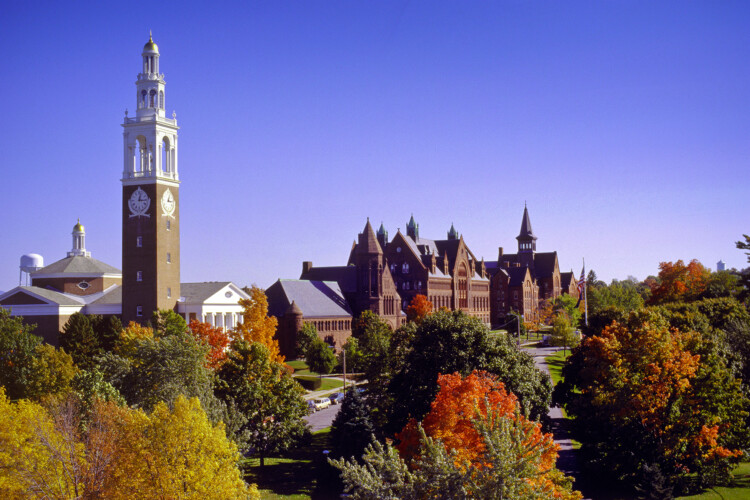
Legal Issues in Higher Education Conference
-
Type
Conference -
Format
On Campus, Online -
Semester
Fall
The University of Vermont annually presents one of the nation’s premier legal conferences.
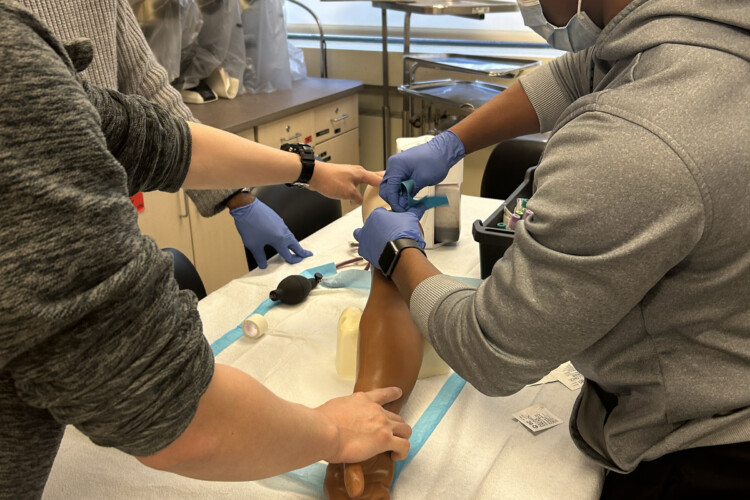
Master of Medical Science Degree
-
Type
Graduate Program -
Format
On Campus, Online -
Semester
Fall, Summer
Pursue your dream of medical school with UVM’s Master of Medical Science degree. Our program prepares you to make a strong impression on medical or other health-professional schools.

Master of Professional Studies, Leadership for Sustainability
-
Type
Graduate Program -
Format
Hybrid -
Semester
Fall, Spring, Summer
Cultivate leadership practices that prioritize well-being, reciprocity, and relationships while challenging oppression and dominance.

Master of Public Health
-
Type
Graduate Program -
Format
Online -
Semester
Fall, Spring, Summer
Earn your Master’s in Public Health at UVM and promote more just, evidence-based health interventions for diverse populations.

Master of Science in Medical Laboratory Science
-
Type
Graduate Program -
Format
On Campus -
Semester
Fall
Complete the coursework required to be eligible for the American Society for Clinical Pathology certification exam and start your career in diagnostic medicine.

MCAT Prep for UVM Students
-
Type
University Coursework -
Format
Online -
Semester
Fall, Spring, Summer, Winter
UVM and Kaplan have teamed up to provide students with an opportunity to save money and excel on the revised MCAT.

MedCerts Clinical HealthCare Certifications
-
Type
Certificate -
Format
Online -
Semester
Fall, Spring, Summer
Increase your earning potential and find rewarding work in one of the fastest-growing industries in the U.S. — healthcare through online training on-demand. Offerings include:
Medical Billing Specialist ● Electronic Health Records and Reimbursement Specialist ● Medical Coding and Billing Professional ● Mental Health Support Professional ● Phlebotomy Technician ● EKG Technician ● Cardio-Phlebotomy Technician ● Medical Laboratory Assistant ● Patient Care Technician ● Healthcare Administration Professional ● Sterile Processing Technician ● Surgical Technologist ● Surgical/Sterile Processing Technician ● Physical Therapy Aide and Administration Specialist ● Behavior Technician Specialist

MindEdge at UVM
-
Type
Certificate -
Format
Online -
Semester
Fall, Spring, Summer, Winter
UVM Professional and Continuing Education offers a variety of self-paced online courses through a partnership with education innovator MindEdge, Inc.

Non-Profit Management
-
Type
Certificate -
Format
Online -
Semester
Fall, Spring, Summer, Winter
Whether you’re looking for staff training at your organization or focusing on your own skills, MindEdge’s certificate program and courses in nonprofit management offer a comprehensive training program in topics from volunteer development and grant writing to fundraising and budgeting. Do a better job of doing good, with a Nonprofit Certificate from MindEdge.

Operations
-
Type
Certificate -
Format
Online -
Semester
Fall, Spring, Summer, Winter
Create a well-oiled machine. Become a well-oiled machine. MindEdge offers courses in Logistics and Distribution Management, Operations Management, Procurement and Supply Management, and Supply Chain Management Basics.
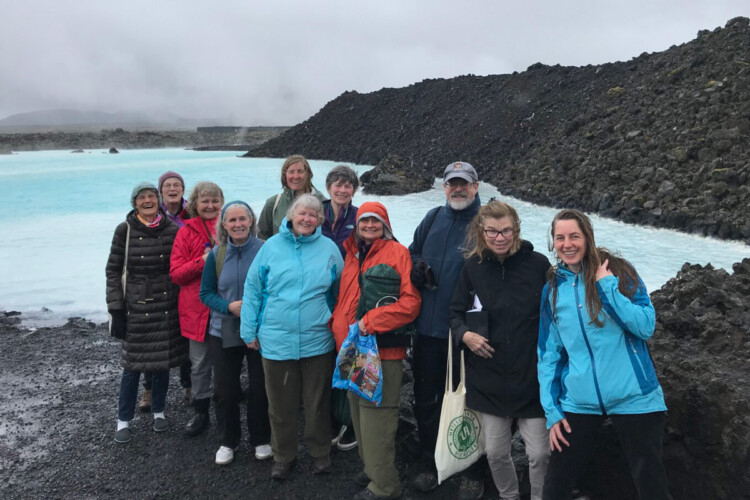
Osher Lifelong Learning Institute (OLLI)
-
Type
Workshop -
Format
On Campus, Online -
Semester
Fall, Spring, Summer
The Osher Lifelong Learning Institute (OLLI) at UVM provides year-round workshops and events that are diverse, interesting, fun, and affordable for a community of adult learners. Explore offerings on campus at UVM, across the state, and online.
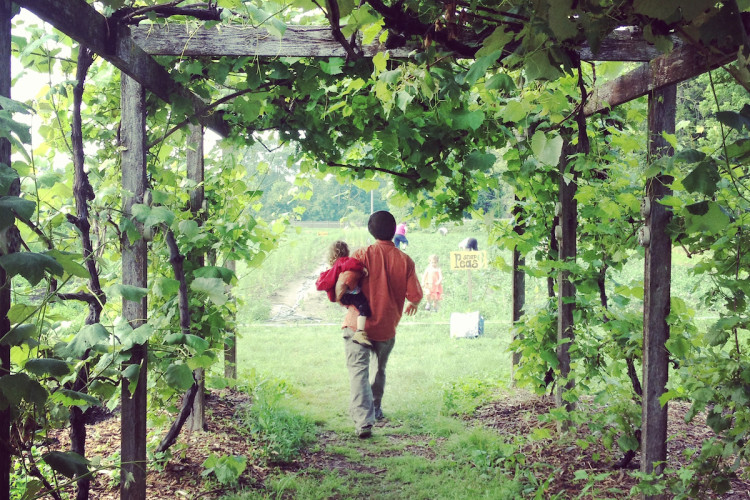
Participatory Action Research and Transdisciplinary Agroecology
-
Type
University Coursework -
Format
Online -
Semester
Fall
Available as a non-credit, 14-week, online course, students will have the opportunity to examine examples of agroecological PAR projects, draw upon lessons learned, and find inspiration.

Pediatric End-of-Life Doula Specialist Certificate
-
Type
Certificate -
Format
Online -
Semester
Fall, Spring, Summer
Offer compassionate, non-medical support to children at the end of life, along with care and guidance for their families and support networks. Through advanced training, you’ll gain the skills to navigate emotional, developmental, and family dynamics in pediatric end-of-life care with confidence and empathy.

Post-Baccalaureate Medical Laboratory Science
-
Type
Credit Certificate -
Format
On Campus -
Semester
Fall, Spring, Summer
With UVM’s medical lab science program, you can get the training you need to be eligible for the American Society for Clinical Pathology certification. Start your career in diagnostic medicine today.
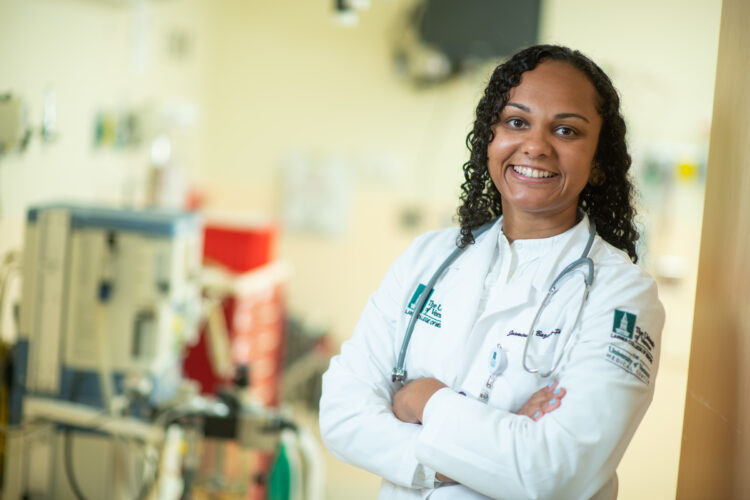
Post-Baccalaureate Pre-Medical Program
-
Type
Credit Certificate -
Format
On Campus -
Semester
Fall, Spring, Summer
UVM’s Post-Bacc Pre-Med program is your solution to realizing your future as a healthcare provider.
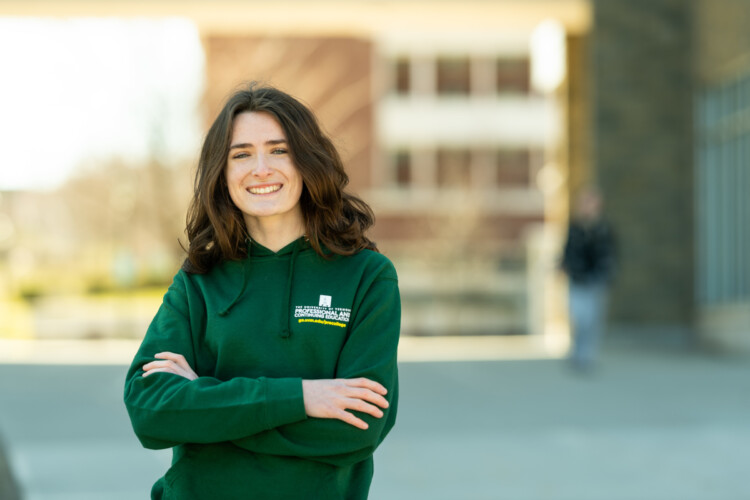
Pre-College Courses
-
Type
University Coursework -
Format
On Campus, Online -
Semester
Fall, Spring, Summer, Winter
High school students are invited to take on-campus or online for-credit courses throughout the year with current college students at UVM. Our entry-level courses—ranging from Art History to Wildlife Biology—are appropriate for high school students and UVM’s small class sizes are perfect for interacting with faculty.

Pre-RD Sequence
-
Type
University Coursework -
Format
Hybrid -
Semester
Fall, Spring, Summer
Through UVM, work towards obtaining a Verification Statement and being eligible to apply to internships or a Master’s degree.

Project Management Skills PMSCP Certification
-
Type
Certificate -
Format
Online -
Semester
Fall, Spring, Summer, Winter
These project management courses and simulations will teach you the best practices for running a project and ensuring success. Powered by MindEdge, the courses cover the domains of project management and can prepare you for high-stakes certification tests. Our courses carry PDUs across PMI’s talent triangle and span introductory and intermediate topics.

Resiliency-based & Trauma-Informed Practices
-
Type
Credit Sequence -
Format
Hybrid -
Semester
Fall, Spring, Summer
UVM offers this coursework to prepare educators and health professionals to address the complex challenges associated with trauma.
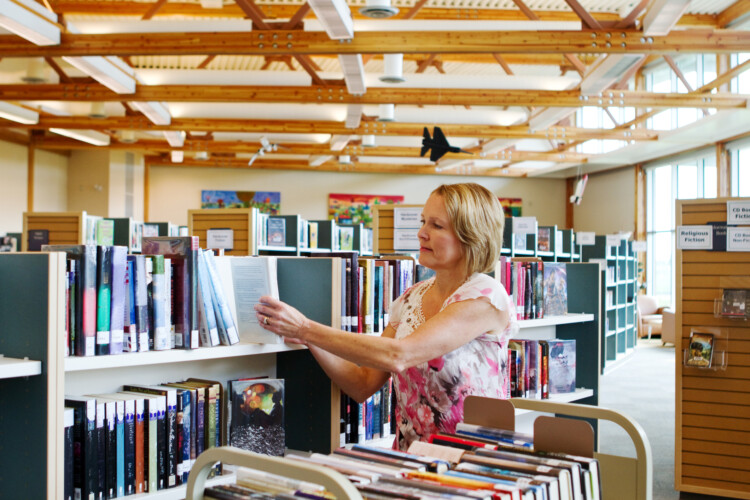
School Library Media Specialist
-
Type
Credit Sequence -
Format
Hybrid -
Semester
Fall, Spring, Summer
The University of Vermont offers graduate educational opportunities for those interested in school library media studies to earn licensure in Vermont or to acquire a graduate degree in school library media.

Six Sigma & Lean
-
Type
Certificate -
Format
Online -
Semester
Fall, Spring, Summer, Winter
Get quality certifications in quality management. MindEdge offerings include Six Sigma Green and Yellow Belt Prep Course and Exam, and Lean Six Sigma Green and Yellow Belt Prep Course and Exam.

SLP Pre-Master’s Track Program
-
Type
Credit Certificate -
Format
Online -
Semester
Fall, Spring
Offered fully online, UVM’s 19-credit Pre-Master’s speech-language pathologist certificate is designed for students interested in completing the required undergraduate coursework needed to apply to a master’s program.

SLPA Professional Certificate
-
Type
Credit Certificate -
Format
Online -
Semester
Fall, Spring
Get trained and certified with UVM’s SLPA program online. Our program meets all of the American Speech Language Hearing Association’s (ASHA’s) guidelines for the preparation of SLPAs.
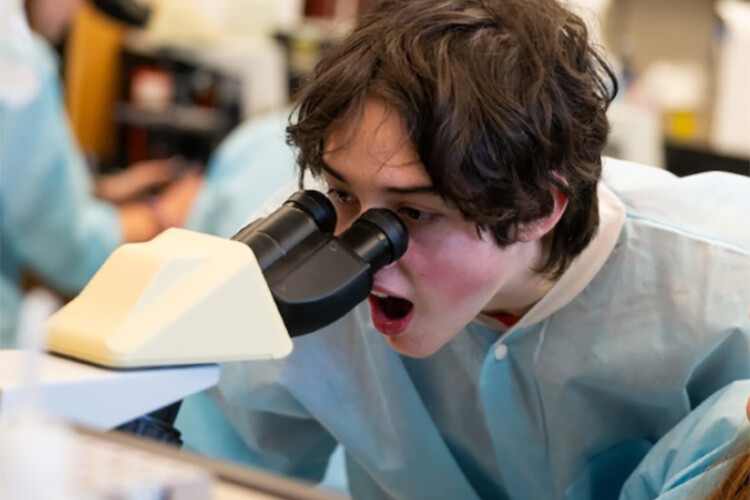
Summer Academy
-
Type
University Coursework -
Format
On Campus, Online -
Semester
Summer
UVM’s Summer Academy gives high school students the opportunity to live on campus while taking a college course with other high school students. Students will explore a specific field of study and get a head start on their college career while earning valuable college credits.

TalkVermont
-
Type
Workshop -
Format
On Campus -
Semester
Learn the fundamentals of serious illness conversations and connect more deeply with your patients and their loved ones.
We apologize for not being able to generate any results matching your search criteria. Our professional and continuing education courses, certificates, and graduate programs are constantly updated to ensure they meet the changing needs of our students and the industries they serve. Please try again with new search criteria or contact our support team for assistance in finding the perfect program for you.
